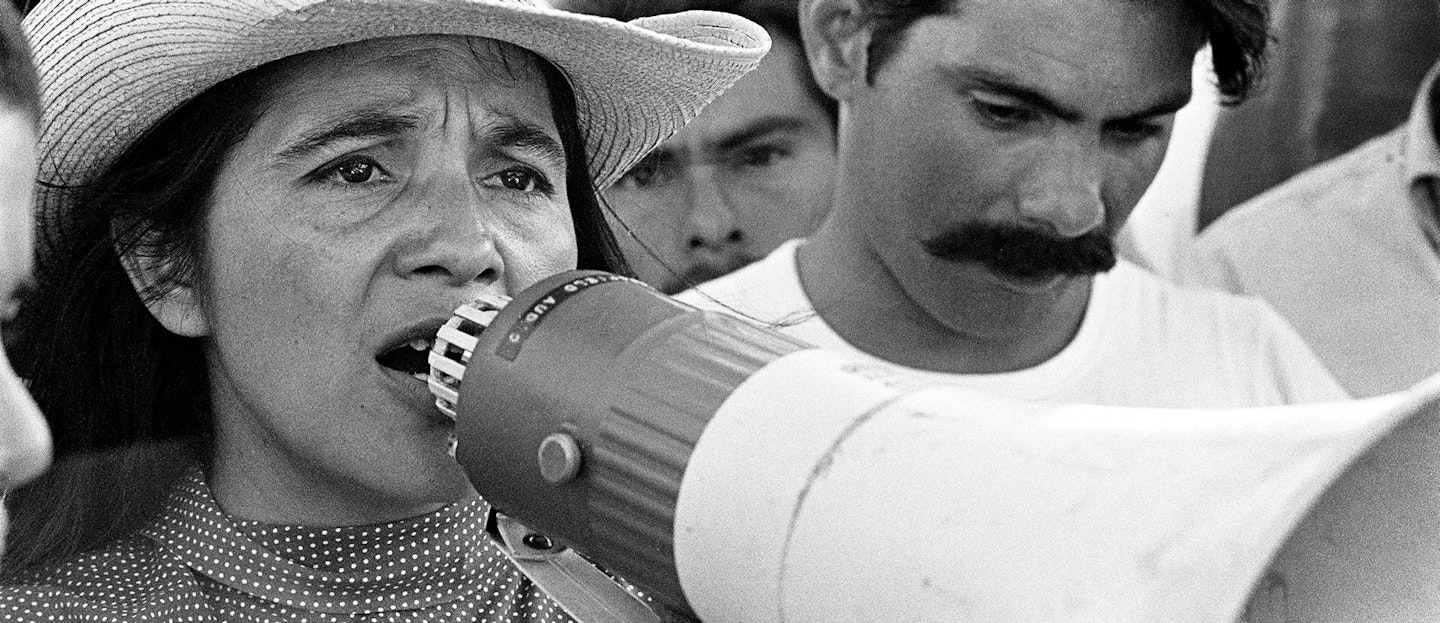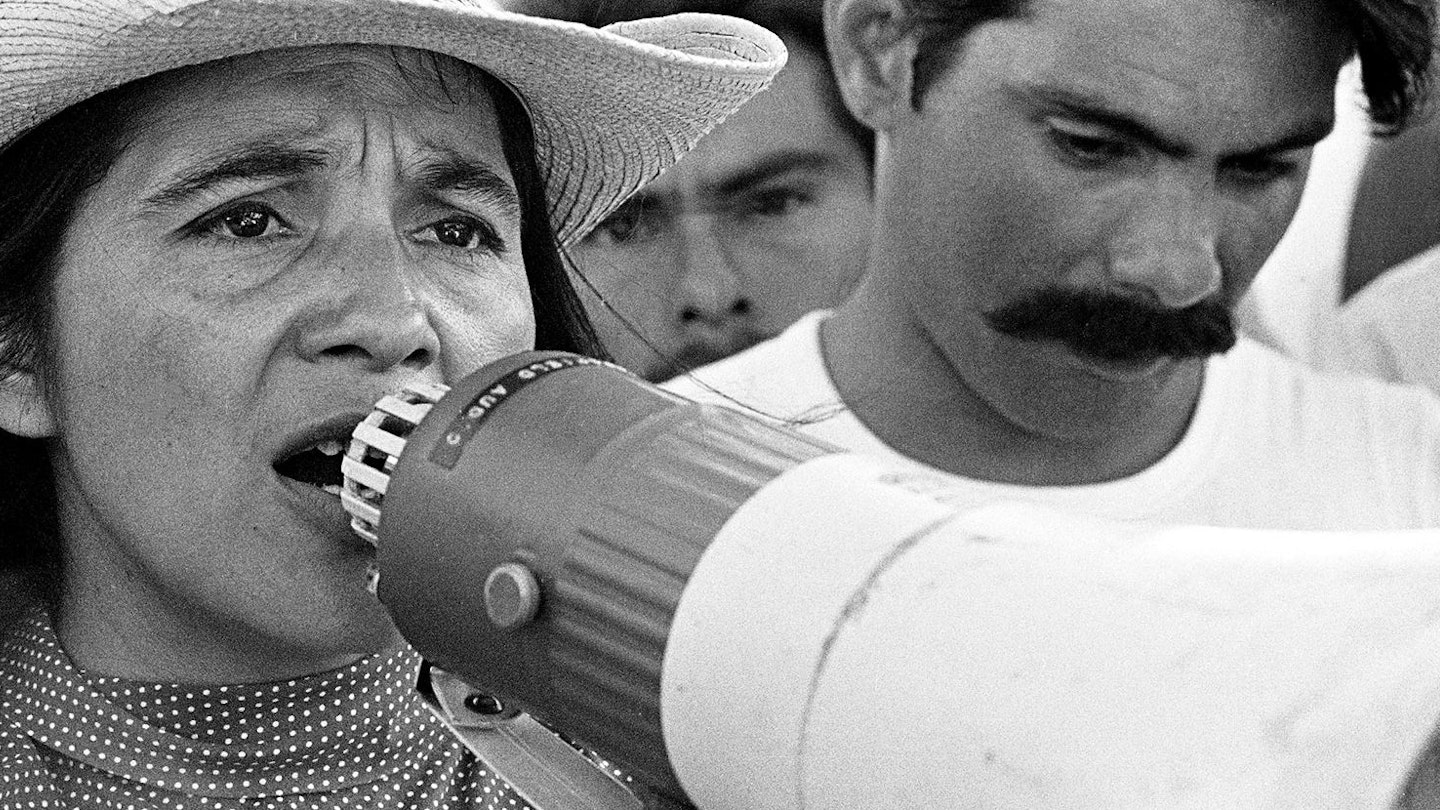She co-founded the pioneering United Farm Workers’ Union with César Chavez, spent decades fighting for workers’ rights, and coined the phrase “Si, se puede” (“Yes, we can”) borrowed by Obama for his Presidential campaign, yet Dolores Huerta is one of the lesser known heroes of the civil rights movement – not least because Chavez has been given much of the credit for her work. Now, documentarian Peter Bratt sets the record straight with an illuminating, rabble-rousing film tracing the origins of Huerta’s activism and documenting her pivotal role in many of the 20th century’s key social movements, including her organisation of the five-year grape boycott (1965-1970) – the largest consumer boycott in US history – which led directly to new rights for farm workers.
Unearthing archive footage even Huerta hadn’t seen before, Bratt (brother of actor Benjamin, who co-produces with musician Carlos Santana) contextualises events among the wider socio-political landscape of the ‘60s, ‘70s and ‘80s, and interviews farmworkers, activists, admirers, Huerta herself (who, unlike the other interviewees, speaks directly to camera), and most of her eleven children. Their emotional recollections, about the personal cost of their mother’s relentless work ethic, provide some of the film’s most powerful moments, and serve as a reminder that in addition to the normal struggles of a firebrand political activist, Huerta had to endure frequent attacks over child neglect and immoral behaviour, being sidelined and diminished by her proximity to Chavez, and very nearly written out of history.

Events in Venezuela and Puerto Rico, and the Trump administration’s rhetoric against the Latino community, arguably lend new urgency to Bratt’s film, which highlights the ongoing struggle for equality among Latinos, and suggests that the demise of the union was one of the great tragedies of the 20th century. It’s a powerful, provocative filmmaking that could potentially inspire a new generation of Dolores Huertas.
